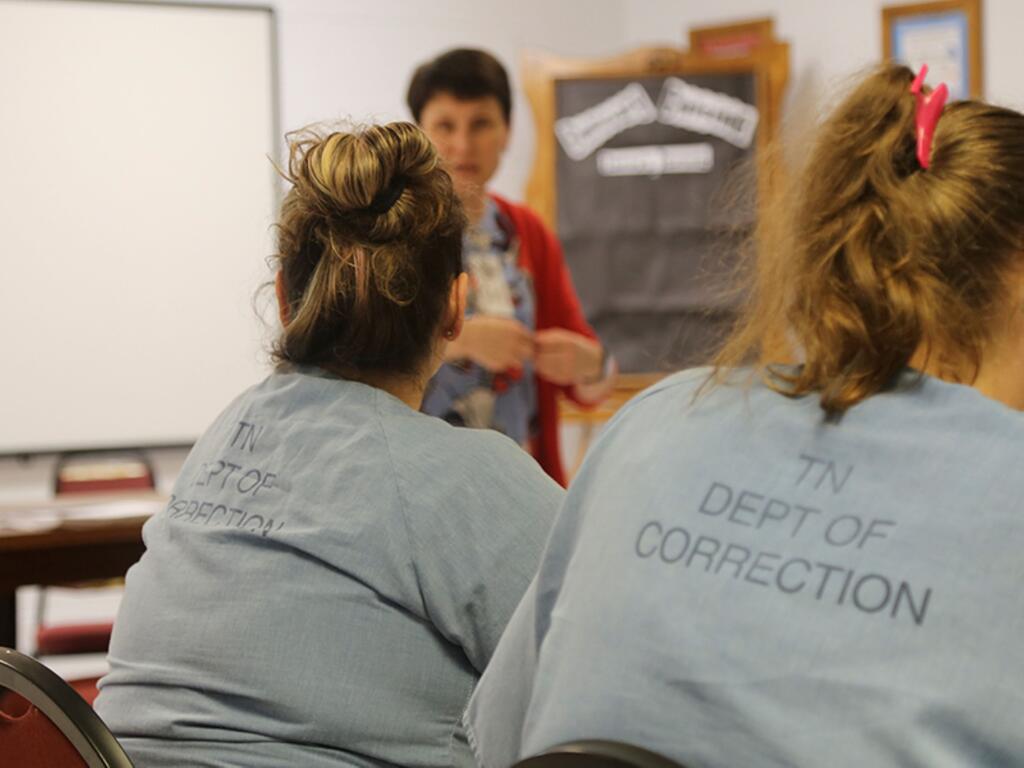Rhodes College has joined the national Consortium for the Liberal Arts in Prison, deepening its commitment to creating access to higher education for incarcerated people.
The Consortium for the Liberal Arts in Prison cultivates and supports college-in-prison programs in partnership with colleges and universities across the country. It was established in 2009 by the Bard Prison Initiative (BPI) at New York’s Bard College. Rhodes College is the Consortium’s first institution in the South.
The Rhodes College Liberal Arts in Prison Program began in 2016 with a weekly Great Books Reading Group at the Women’s Therapeutic Residential Center (WTRC), a state prison in Henning, TN, where more than half the women incarcerated by the state of Tennessee reside. Dr. Stephen Haynes, professor of religious studies, is founder and director of the program which has involved 36 Rhodes faculty members from 10 departments. More than 50 Rhodes students have participated as peer tutors.
“Joining the Consortium for the Liberal Arts in Prison is a great honor for Rhodes,” said Haynes. “The Consortium will provide a community of practice that will enrich our Liberal Arts in Prison program and help us to thrive and expand. We have much to learn from the Bard Prison Initiative, as well as from prison education programs at Consortium members such as Yale, Wesleyan, Notre Dame, Villanova, Boston College, Grinnell, and Washington University.”
“Partnering with Rhodes College has been transformative for the incarcerated women at the Women’s Therapeutic Residential Center,” said Christa Jenkins, post-secondary education coordinator with the Tennessee Department of Correction. “The program equips them with valuable career and life skills, preparing them for a successful return home and reducing their likelihood of reoffending.”
In 2019, Rhodes introduced a for-credit Certificate in Liberal Arts at the prison, a four-semester sequence of courses patterned on Rhodes’ Search program. Search has been a signature feature of the college’s curriculum since 1945.
In May 2024, the fourth student cohort of the Liberal Arts in Prison Program graduated in a ceremony at WTRC. These eight graduates joined 75 other women incarcerated at WTRC who since 2019 have completed more than 700 Rhodes College credit hours. Many have gone on to pursue associate degrees through Dyersburg State Community College.
“We are proud to partner with Rhodes in this next era of its commitment to democratize access to a meaningful college education for people who have historically been excluded,” said Jessica Neptune, director of national engagement for the Bard Prison Initiative. “We have seen all across the country the ways a college education drastically changes the trajectory of our students’ lives. A Rhodes education will be a game changer not just for individual students but for their families and communities for generations to come. We are grateful to Rhodes to help pave the way for more colleges and universities to join this work.”
With the addition of Rhodes, the Consortium for the Liberal Arts in Prison now represents 18 colleges and universities, across 13 states. All Consortium partners make a fundamental commitment to liberal arts learning that aims to transform individual lives by putting academics first.
